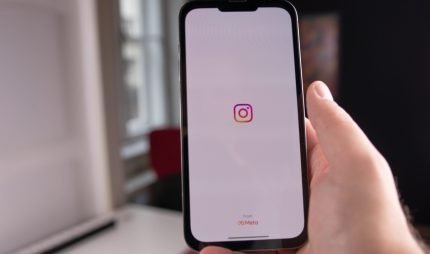Digital marketing is unique in the history of the marketing industry because of its ability to reach a global audience instantaneously. The international appeal of online communication makes it easy to think of that global reach as the primary driver of online marketing, and there may have been a time when that was the case. But as digital marketing and the internet as a whole have become increasingly refined, it has also become easier for ecommerce websites and social media accounts to tailor their campaigns to specific local markets.
When a Global Outlook is Restrictive
Many people still think of the internet as an inherently borderless and all-encompassing digital landscape, but ironically this perspective can be somewhat limiting. When each new encounter online could just as easily be with someone on another content or someone right down the block, it’s arguably difficult to even conceptualize digital marketing as something that increases foot traffic to a brick-and-mortar store, or facilitates widespread attendance of an entirely local event.
This in turn can prompt some businesses to eschew digital marketing campaigns altogether, even if they have an established online presence. In those cases, owners might think of their social media accounts or their websites as functioning only to communicate information to people who have already visited their storefront or ate in their restaurant or otherwise conducted business with them. There’s certainly value in this, but it is dwarfed by the loss of potential that comes from limiting one’s actual marketing efforts to traditional media such as local newspapers, billboards, and commercials.
These traditional ventures can very easily be made to work in tandem with digital marketing campaigns, so as to capture the attention of people who don’t read local papers while still giving appropriate consideration to those for whom that is still a key part of remaining engaged with the local community. The integration of both analog and digital marketing strategies can also amplify brand awareness for people whose attention can be captured by either means.
A customer is more likely to remember a business name, address, or website URL if they spotted it on a billboard after having previously seen it come up in a web search, or vice versa. This is especially true if the relevant digital marketing campaign is effectively targeted. And with the help of local professionals, this has never been easier to achieve.
Nevermind the Place Name (Usually)
Gone are the days when local digital marketing campaigns were expected to use city-specific keywords. Today, highly sophisticated search algorithms do much of the localization work for you. Ordinary web users understand that they don’t have to search “digital marketing company in Los Angeles” in order to find contact information for Pink Shark Marketing. The general keywords are typically enough, and the search results page will favor local results based on the IP address of the person searching.
This is not to say that businesses in Los Angeles should abandon the more detailed search terms altogether. There are situations in which IP addresses don’t accurately reflect the user’s location. Sometimes this is merely a glitch and sometimes it is the deliberate effect of using virtual private networks. In fact, that practice is increasingly common, due to proliferating concerns about privacy and unwarranted online tracking.
Additionally, there are always web users who want to obtain information in advance about a location they’re planning to travel or relocate to, and digital marketing campaigns should keep them in mind when choosing the full range of their keywords. Still, none of this changes the fact that place names are left out of the vast majority of web searches for brick-and-mortar businesses, on the understanding that one’s default location is correct.
In those cases, the effectiveness of one’s digital marketing campaign will have more to do with an understanding of what the local target audience is most likely to search for, as well as the specific language they will tend to use, and the circumstances in which they will make those searches. Much of this can be determined in advance by a professional web marketing company, especially one with an established presence in the local market and an understanding of how local consumers have behaved in the past.
Building an Online Community, Locally
Partnership with a local internet marketing company may also yield the benefit of easy access to their fellow clients and contractors. Local marketing professionals can often provide website owners with valuable leads on local influencers, local social media groups, and local trending topics. All of these can be leveraged to develop a strong presence of a company brand in digital spaces that are overwhelmingly viewed by people who are a short physical distance away from the associated retailer or institution.
If you’re one of those people who tends to think of the internet as a place where people blindly mingle from all across the globe, then you might be surprised by the very existence of these local online communities. But the fact is that growing numbers of people tailor at least a portion of their following on Twitter and Instagram based on the accounts’ physical locations. As traditional media have come to play lesser roles in people’s lives, many of them have noticed the associated loss of local engagement, and have found ways to successfully compensate for it online.
Commercial accounts can do the same, though some may find it difficult to get started if they are new to the concept of local-area digital marketing. Local professional partnerships can help to get the ball rolling, but once a few local accounts have begun engaging with local branded content, others are sure to follow. Once that engagement reaches a certain point, the company and its digital marketing team can begin to explore promotions, contests, giveaways, and other creative ventures that capitalize on the ever-expanding overlap between local communities and the online world.



